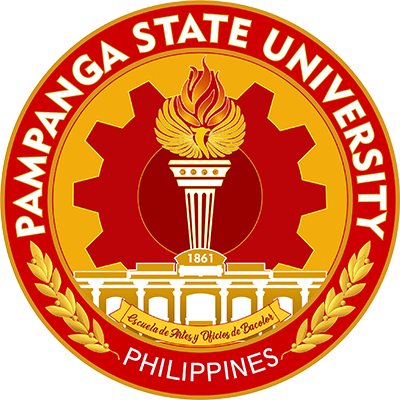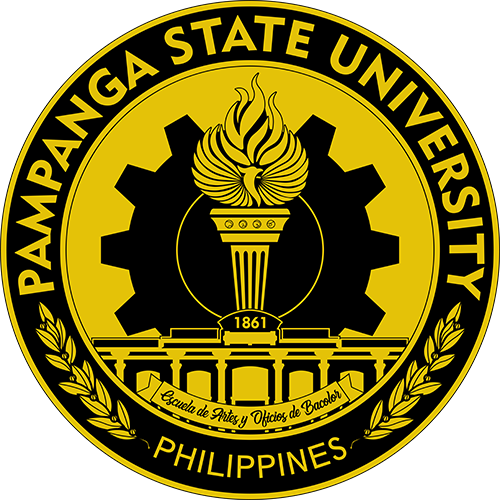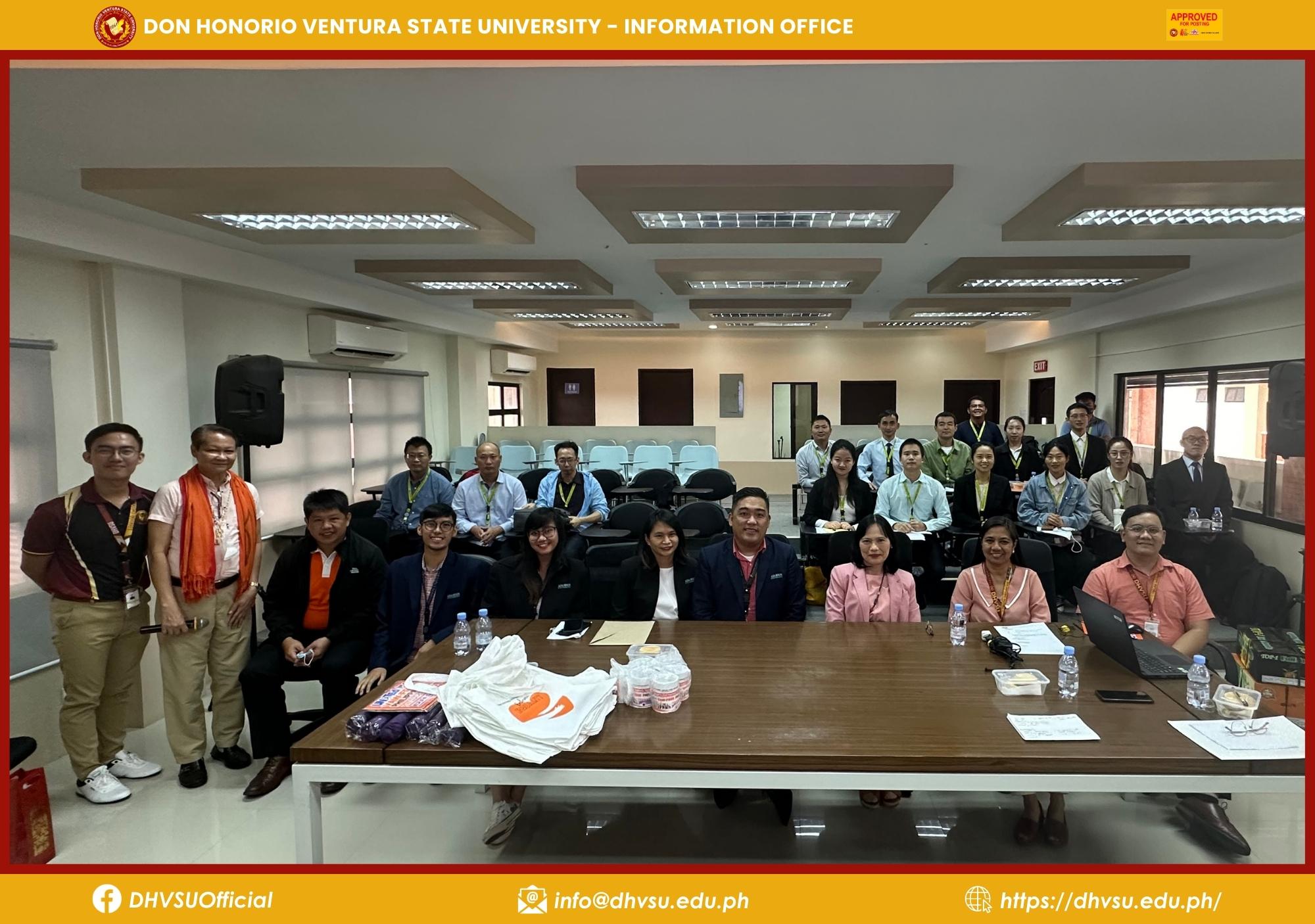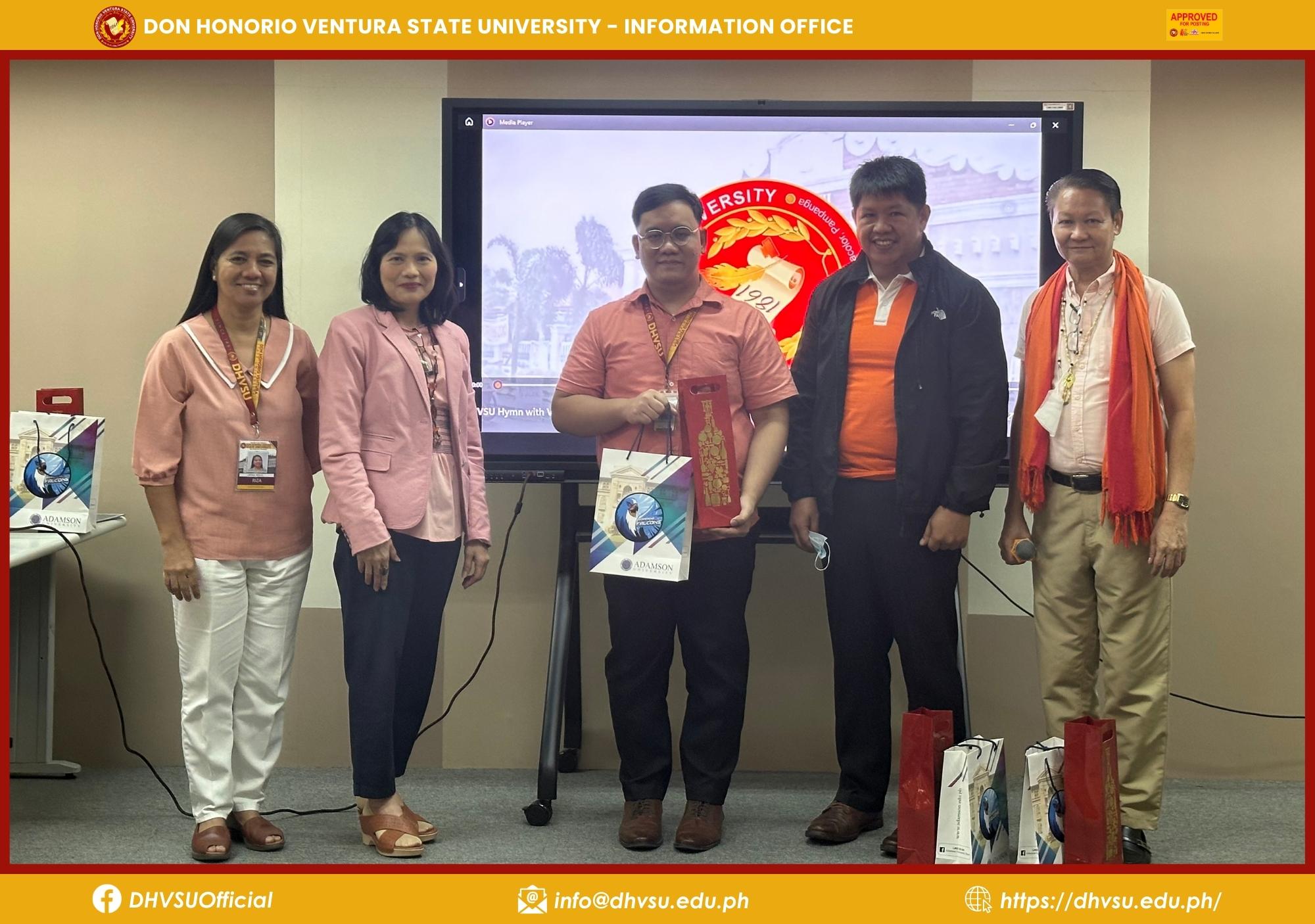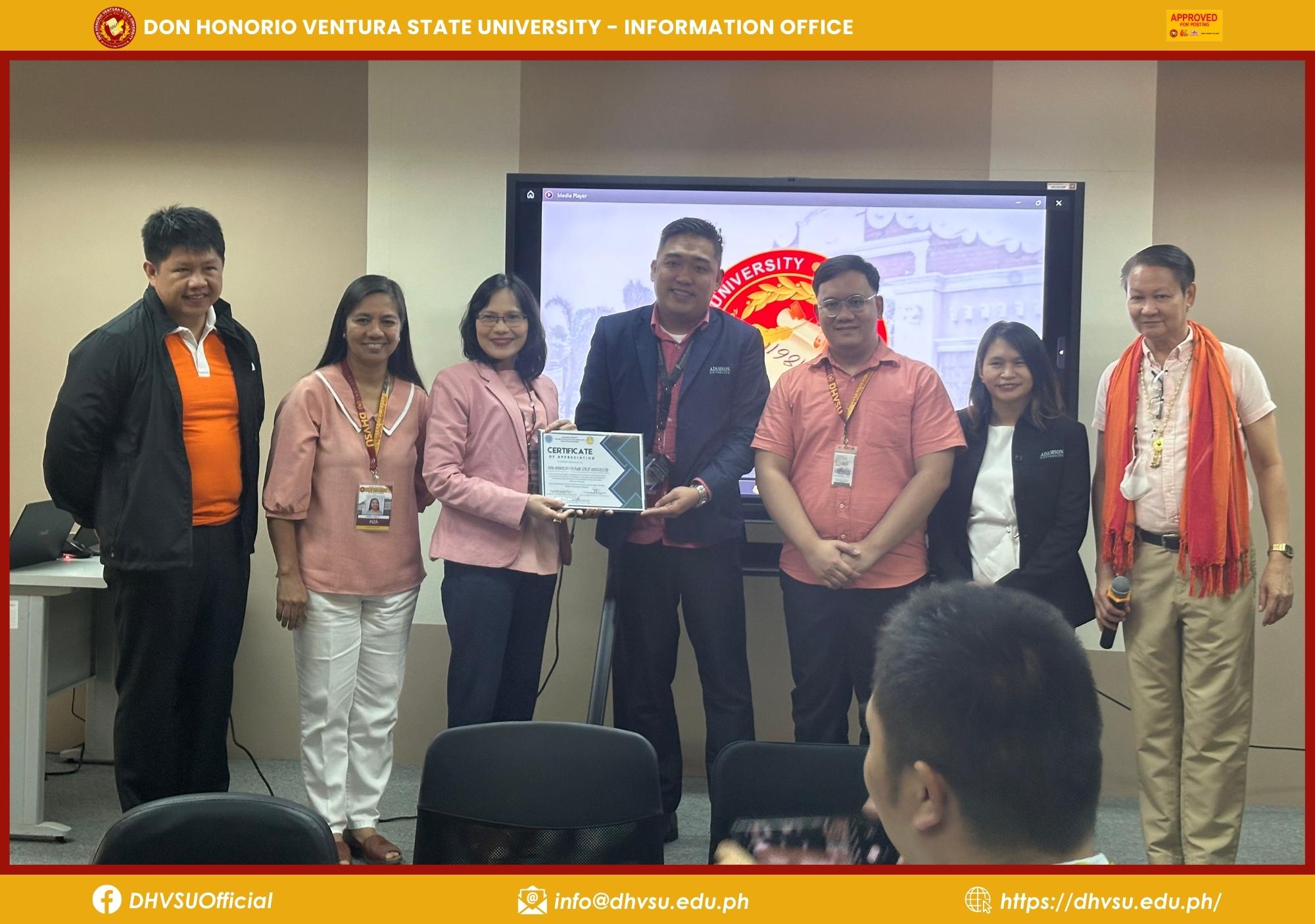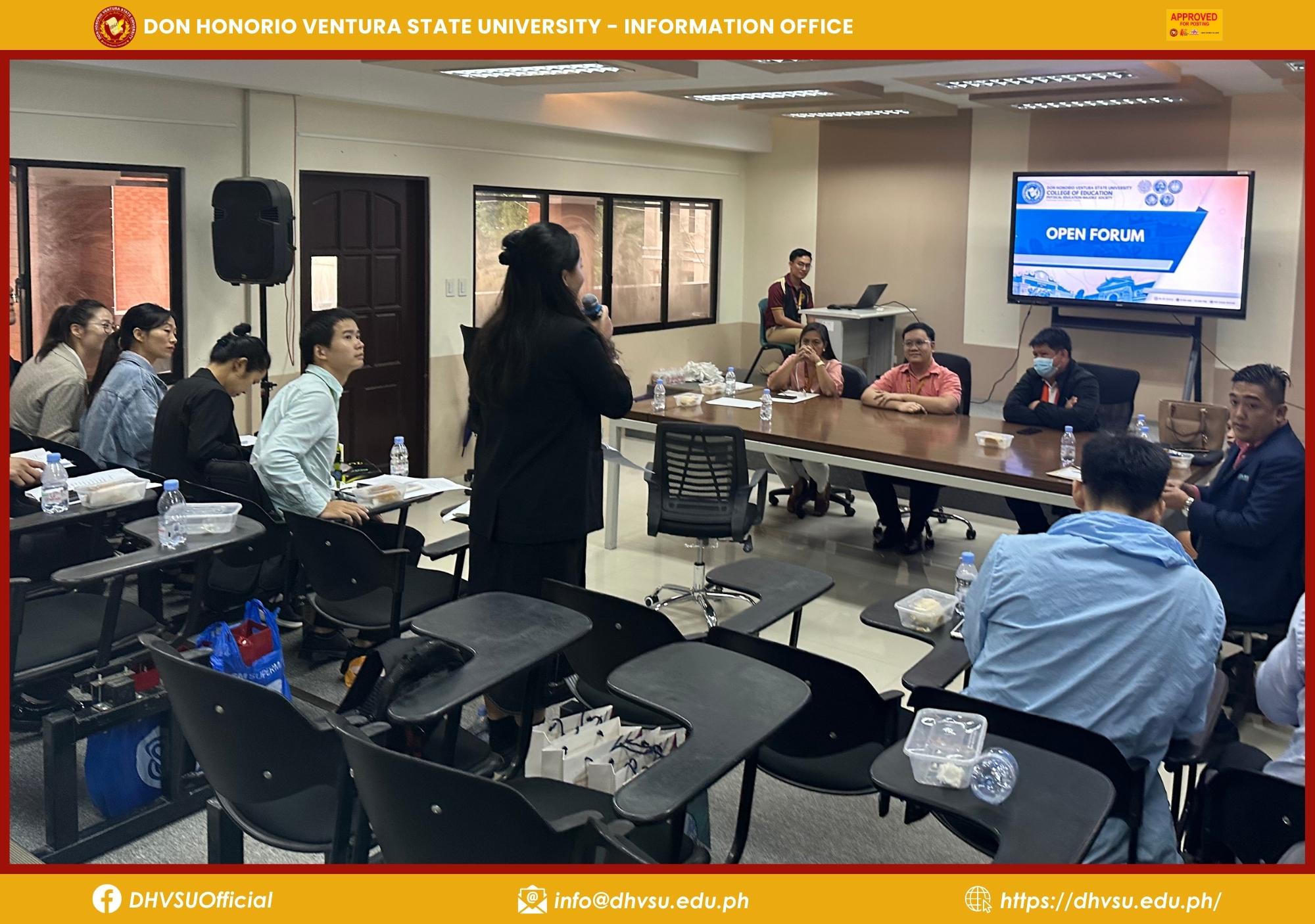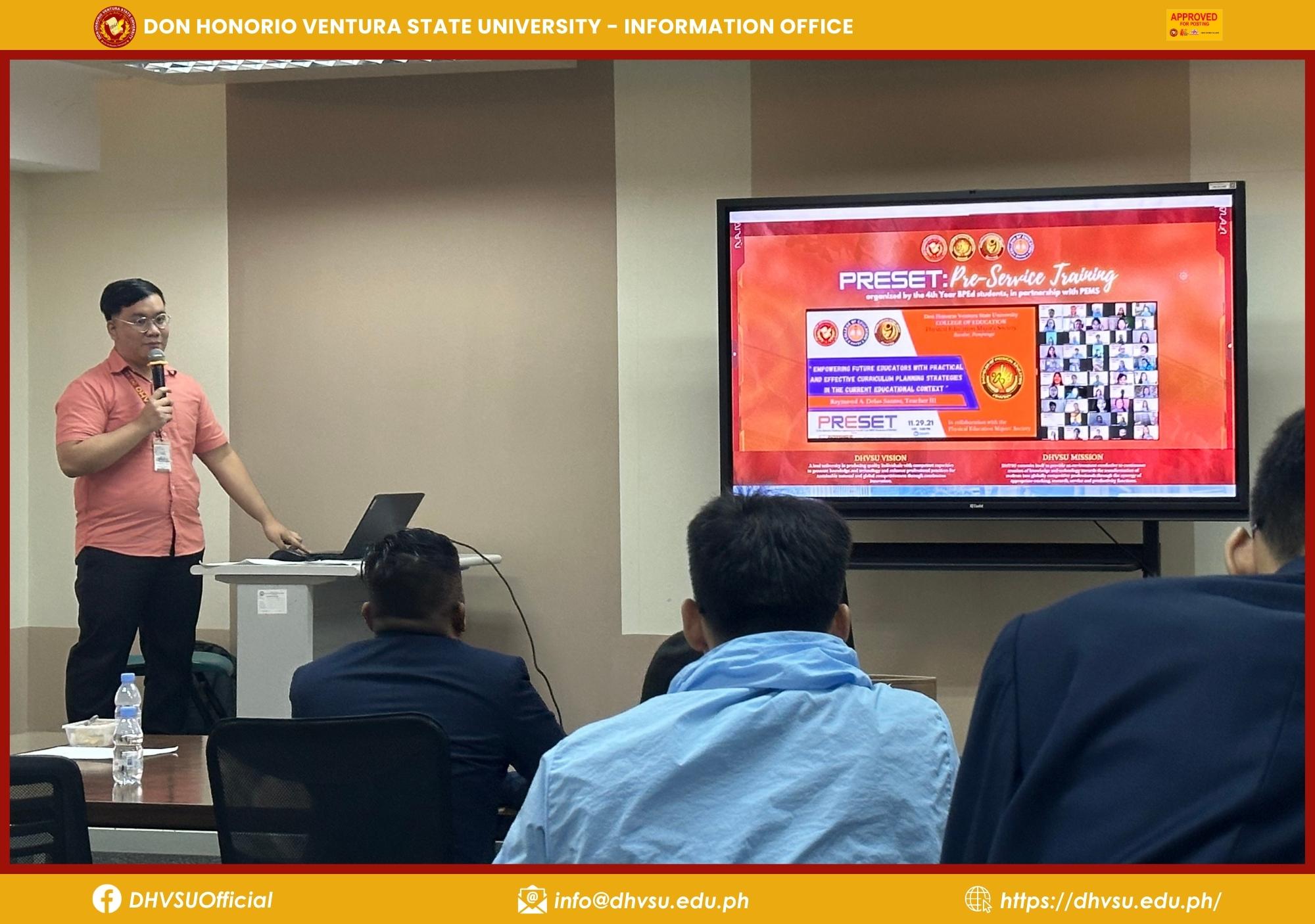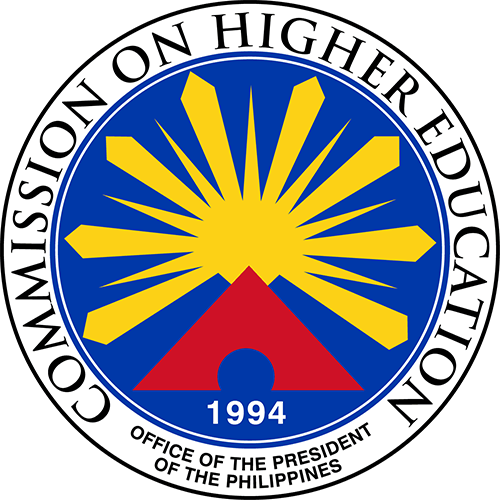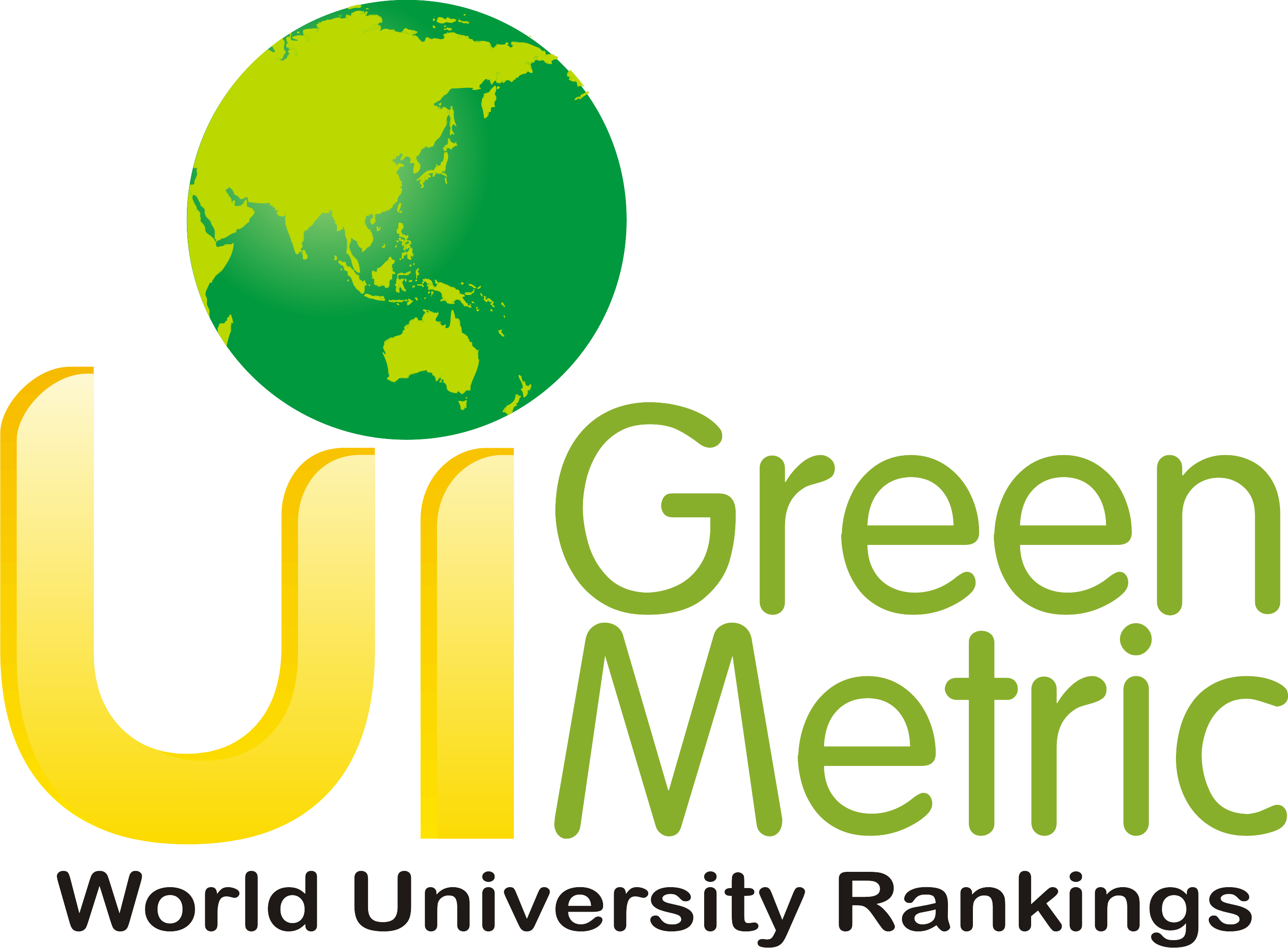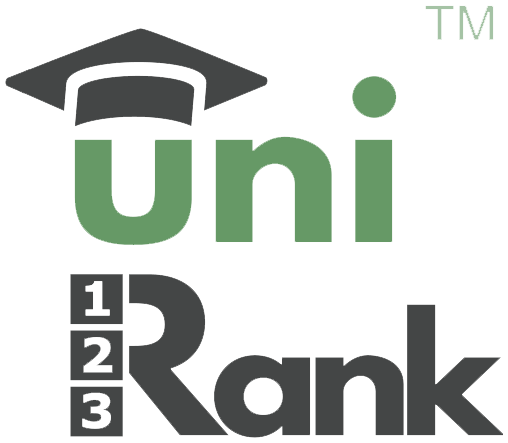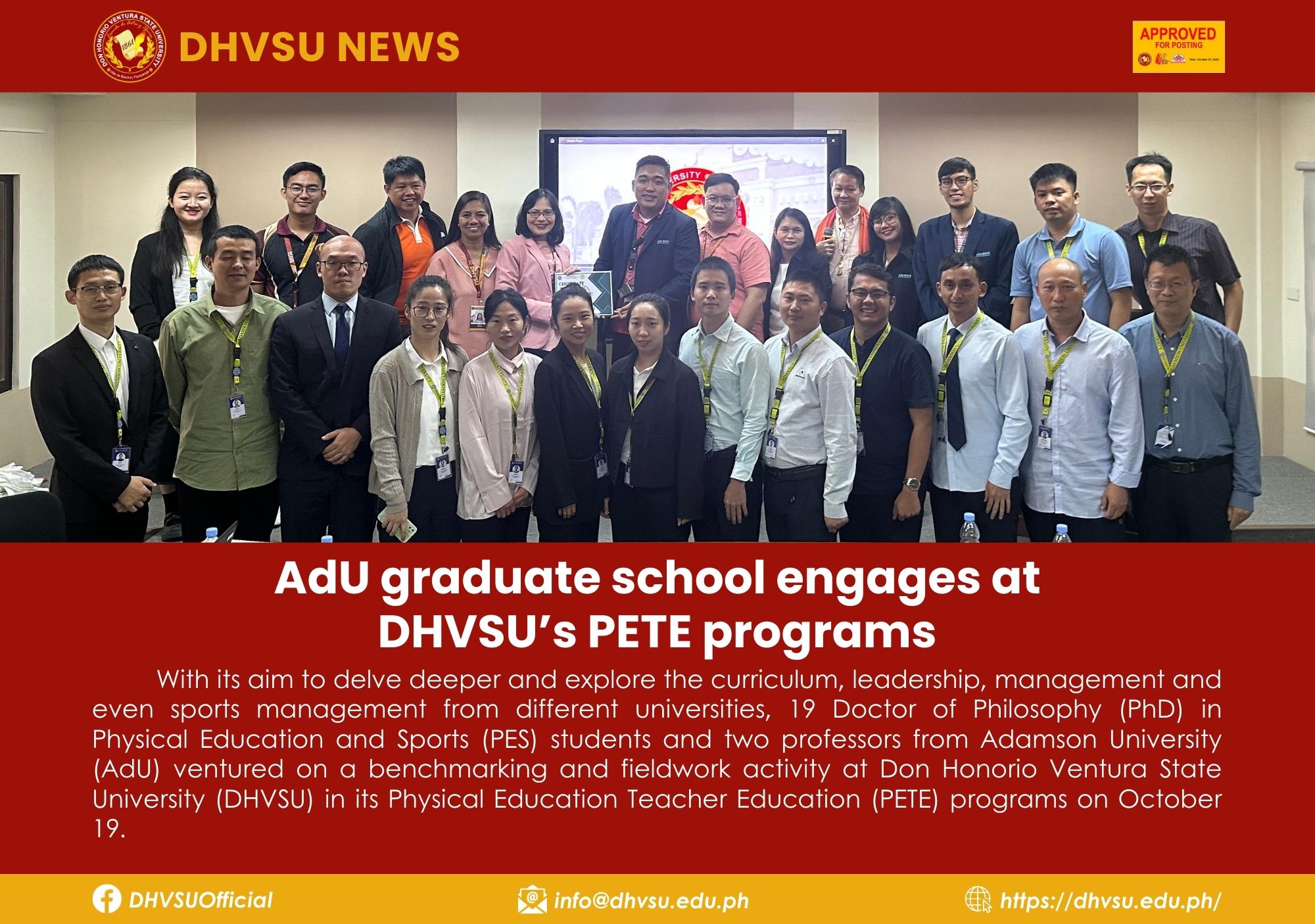
With its aim to delve deeper and explore the curriculum, leadership, management and even sports management from different universities, 19 Doctor of Philosophy (PhD) in Physical Education and Sports (PES) students and two professors from Adamson University (AdU) ventured on a benchmarking and fieldwork activity at Don Honorio Ventura State University (DHVSU) in its Physical Education Teacher Education (PETE) programs on October 19.
“Honestly, talagang saludo kami sa DHVSU will all its excellent achievements and awards from the different institutions like the Commission on Higher Education,” Dr. Mark Christian I. Siwa, Graduate School Professor and Benchmarking Supervisor of AdU, said in stating the purpose of the activity.
He also said that they are expecting that the students from AdU and DHVSU will have an exchange of ideas on the different trends, issues, and challenges and even the best practices for PE and sports programs.
Asst. Prof. Julius Ceazar G. Tolentino, the area chairperson of the Bachelor of Physical Education (BPEd) program, took the lead in presenting the remarkable practices of the program offering.
“Whatever we include as a course learning outcome, we always target some of the beginning teacher's indicators and some of our program outcomes. Whenever we do a heat mapping of this curriculum, we will determine whether our courses address the outcomes that should be manifested in the program outcomes and beginning teacher’s indicators,” Tolentino shared in his discussion.
He also gave the context of the prospective ladderized program: Bachelor of Science in Exercise and Sports Sciences major in Fitness and Sports Coaching, and major in Fitness and Sports Management that will soon be offered in the coming academic years.
Furthermore, Dr. Jumel C. Miller, Coordinator of the Master of Arts in Education major in Physical Education (MAEd-PE) program, provided insights about the foundation of the program at DHVSU where he told the story of how they saw the differences when they went into the actual teaching field in various public and private schools in the Philippines and even Singapore.
“In the Philippine context, we look into what is needed in the field so in the development of the curriculum, we establish three competencies because our teachers teaching in public and private schools have in common. Most of them [PE teachers] lack competency in administration, coaching, and instruction,” Miller mentioned how DHVSU came up with the MAEd-PE program.
The visit also involved a campus tour specifically of the facilities of DHVSU that are designed to support both instructional and co-curricular activities, with a particular focus on sports and development.
The event was graced by several distinguished leaders of DHVSU including Dr. Dolores T. Quiambao, the Vice President for Student Affairs and Services, and concurrent dean of the graduate school; Dr. Riza Lintag, the College of Education dean, and Dr. Wilfredo Cunanan, the area chairperson for Bachelor of Secondary Education program and a MAEd-PE faculty.
Words by Samantha F. Batalla | Information Officer
Contributed photos from Jemina Nicolette Bargamento and Jaslee Campo | DHVSU - Physical Education Majors’ Society
